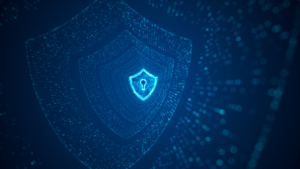With many organisations around the world shifting gear to a hybrid working model and accelerating cloud adoption at speed, we continue to witness a surge of sophisticated cyber attacks backed by increased adversary motivation and capability.
Therefore, it is not a surprise that cyber security has been identified as the top priority for businesses post-pandemic, according to research firm Omdia’s Future of Work report.
However, while there is clearly a need for businesses to reassess the effectiveness of their cyber security strategies and adapt with the times, it is important to remember that no matter how well planned a strategy is, its success can be held back if leaders do not proactively invest in cultivating a culture of cyber security across the organisation.
Company culture and cyber security culture: two sides of the same coin
If you are like our business and many of our customers, cultivating a positive company culture, overall, will be seen as a strategic priority. One that is both strategically relevant, by prioritising the behaviours essential for business success, and strong, in the sense that employees value and trust it and embody it in their attitudes and behaviours every day.
When it comes to building a culture of cyber security, this is no different. In other words, it can and should be integrated as part of the wider organisational culture.
Cyber security is not and should not be the responsibility of a single team or function. Crucially, it needs to be a shared responsibility across the business, along with its extended ecosystem of technology partners, vendors and suppliers.
This takes commitment and action across the organisation to make it a success. So, what are some of the considerations to building an effective, sustainable cyber security culture that is embedded within the DNA of an organisation’s culture? Let’s take a look:
Make cyber security a part of everyone’s responsibilities
Creating an effective cyber security culture starts from the top by instilling the concept that cyber security belongs to everyone, not just the IT team.
It is important that everyone in the organisation sees themselves as someone who can protect their company from attacks and is committed to preventing them – irrespective of whether they are front office or back office, working at the office or remotely.
Engagement, participation, and communication is key. Talk about the importance of cyber security from the highest levels, embed it as an organisational shared objective and clearly articulate that it is non-negotiable. This doesn’t mean communication just by leaders who have security in their title, but also from other C-level executives all the way through to individual managers.
Having a leadership team that is prepared, willing and able to engage with the wider business on this is the first step in fostering an effective cyber security culture. This commitment is foundational to helping integrate both the concept of cyber security and the right behaviour into all functions within the business.
Put people at the heart of any cyber security strategy
Before the pandemic, employees were already recognised as the first line of defence. Today, the mass shift to hybrid working has meant that this has never been more relevant.
As a result, embedding a strong culture of cyber security is now more important than ever. Done well, it can make a real and tangible impact on the success of an organisation by instilling a “security mindset” across the board.
With the expansion of attack surfaces in the current landscape, identity has emerged as the number one place where people (and therefore businesses) are vulnerable. This is because many users simply do not know what security is required around accessing data, network and confidential information – or do not realise their identity is being compromised.
Whilst implementing a Zero Trust framework as a technical control is key in this new world of work, strengthening the people and culture side of the equation with proper engagement and appropriate security awareness training can help ensure that employees view cyber security as a way of working and truly understand its value to business.
It’s also important to note that even though cyber awareness programmes can be adapted based on your specific business need, there is one aspect that is universally applicable and irreplaceable: Where leaders in the business embody the security culture through their words and actions daily. This can have a particularly impactful effect on the hearts and minds of employees – creating a ripple effect for others in the organisation to follow suit.
Integrate cyber security into business operations
Operational excellence is an area that sometimes gets overlooked when discussing culture in general. However, it is a critical component of success for any business. In the context of this blog, it’s about making cyber security an integral part of business operations.
To build a good operational framework, you will need to have the right people and governance in place from the start. This means making sure that both leadership teams and individual employees understand what they need to know to be effective – in order to act.
By having a well-defined and understood operational structure people will be able to understand who does what, when, why and how it is integral to success and aligned with the overall business strategy and direction. It’s not just about having a policy for every eventuality – it’s also about being clear that policies are working as expected on a day-to-day basis.
Embedding a culture of cyber security requires a holistic approach
We need to start thinking about cyber security culture in a more holistic way, not just as technology or an IT issue. A cultural change requires much more than technology; it requires engagement, participation and communication to win the hearts and minds of everyone in the business.
When businesses start making cyber security part of the overall business objective and operations, that is when a sustainable culture of cyber security will be embedded in the organisation – creating an environment where everyone truly understands and adopts the behaviours needed when it comes to cyber security.


